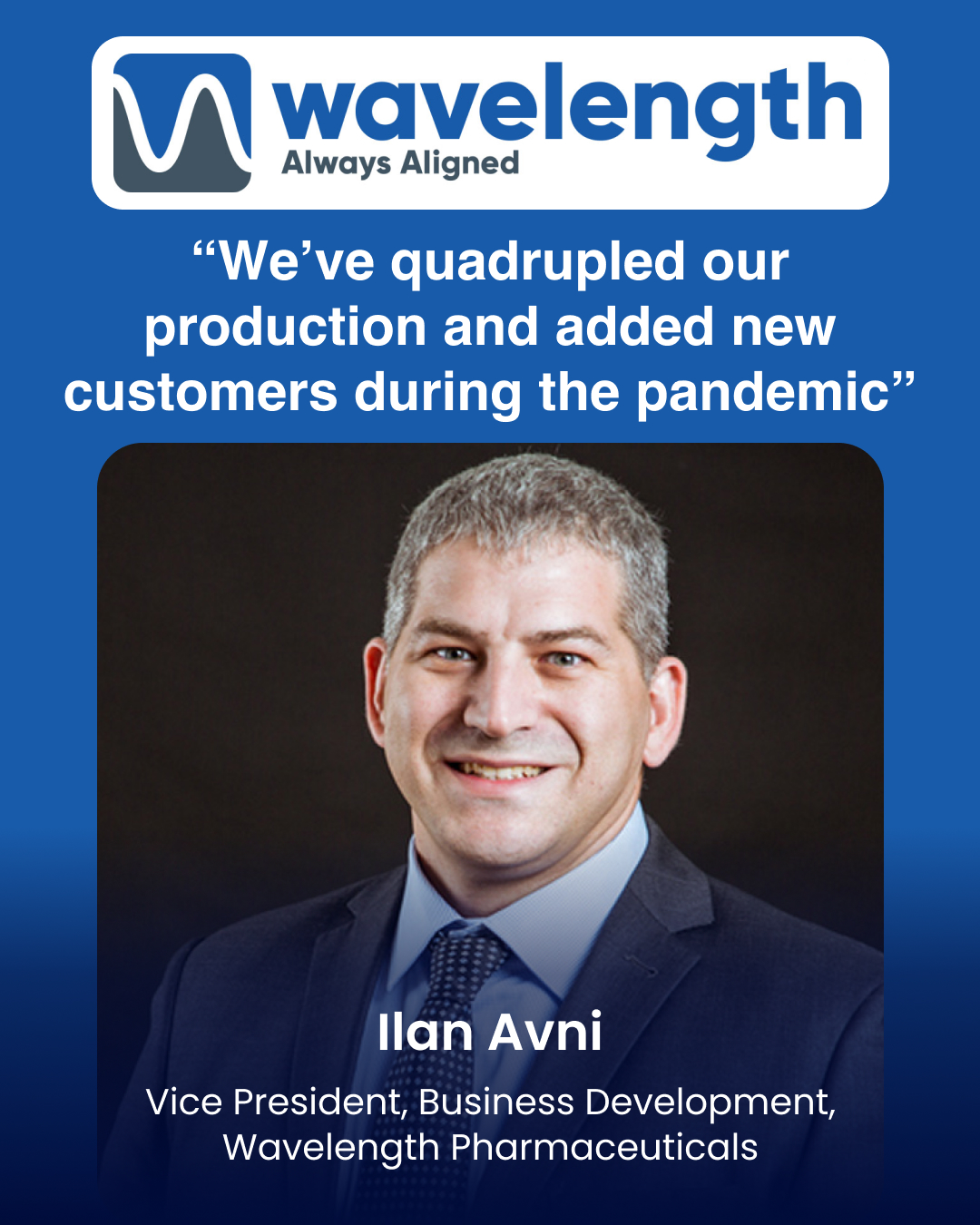
#SpeakPharma with Wavelength Pharmaceuticals
2021-10-26
Impressions: 1588
This week, Ilan Avni, Vice President, Business Development, Wavelength Pharmaceuticals is back on SpeakPharma. He talks about Wavelength’s imminent merger with SEQENS (slated to close later this year), the company’s performance during the pandemic and its various interesting technological capabilities, such as those in enzymatic chemistry, spray drying and particle engineering solutions. In particular, Avni talks about how the merger with SEQENS will make Wavelength a global leader in the API and CDMO space with 22 production sites and 10 R&D centers across the world.
— A year back, we had discussed how Wavelength’s investments in its supply chain has helped the company during the pandemic. Where do things stand today? How has the market changed?
Reflecting on the past year and the ongoing Covid-19 crisis, I can say with confidence that our many years of investment in supply chain assurance has paid off. Not only have we been able to reliably supply critical drugs to our customers during the global crisis, we were also able to quadruple our production and supply to many additional new customers and territories, where other players did not have the capability to deliver.
Times are changing — more and more pharmaceutical manufacturers and governments are coming to the conclusion that reliable supply is a critical investment for long-term sustainable growth.
— How is Wavelength’s merger with SEQENS (slated to close later this year) likely to benefit the company? Do you expect Wavelength’s global standing and market share in the API CDMO space to improve considerably?
We are extremely excited about the upcoming merger with SEQENS. We share the same values, focus on quality, regulatory compliance, and exceptional customer service. The merger will create a global leader in the API and CDMO space with 22 production sites and 10 R&D centers across the world, and a backward-integrated leader offering a broader portfolio of generic APIs and intermediates as well as custom development and manufacturing services across a wide range of added complementary pharmaceutical technologies.
— Wavelength has some interesting technologies. What capabilities have you developed in enzymatic chemistry? And what is Wavelength’s strength in this field?
Enzymatic chemistry is an incredibly powerful tool for organic synthesis. It increases conversion efficiency for significantly higher yields with fewer by-products, equating to faster and more cost-effective production. This is largely due to its superior enantio-, regio-, and stereoselectivity under milder conditions, compared to using conventional metal catalysts.
We have recently completed validation of a new commercial scale enzymatic process for a leading high-volume type 2 diabetes product with results by far superior to any other process in the market. Our customers are getting ready for commercial launch, and we are confident our product is going to provide them with a game changing advantage in this highly competitive market.
We already have several additional products in our pipeline developed using enzymatic chemistry and I believe that with SEQENS’ expertise in developing new tailor-made enzymes and with Wavelength’s expertise in scaling up such processes, we are going to see many more of these products in the market in the very near future.
— Tell us about Wavelength’s strength in spray drying. How have customers benefitted from your capabilities?
Low aqueous solubility of APIs often translates into poor bioavailability that can be a cause of failure during drug development. As such, improved aqueous solubility is a primary objective of formulation development, especially for oral, inhaled, and topical drugs. The number of poorly soluble small molecule drugs has significantly increased over the years and the demand for spray drying capacity is on the rise. Production slots are booked well in advance, creating bottlenecks that threaten to prolong time-to-market.
Wavelength has more than 30 years of proven track record in spray drying and we continue to invest in particle engineering technologies, including current and next-generation spray drying technologies to address solubility and bioavailability challenges for a broad range of therapeutics. We believe this is one of the advanced skills an experienced API CDMO should be able to offer to its customers, especially those looking to develop BCS Class 2 (low solubility and high permeability) and BCS Class 4 (low solubility and low permeability) drugs.
— What additional particle engineering solutions have you developed and how is Wavelength using these technologies to solve drug design challenges?
We have in-house expertise in various micronization techniques, both for high volume APIs as well as corticosteroids and other highly potent APIs up to OEB5 (OEL<1 μg/m3). Our unique micronization equipment can reduce particle size from 5mm to <5μm in a single pass using ultra-low energy technology with minimum mechanical or heat impact. Therefore, there is no impact on crystalline properties or increase in amorphous content, which is a huge advantage.
Wavelength has been supplying various inhalation grade APIs for dry powder inhalers and metered dose nasals for more than 20 years now and many of our customers have selected Wavelength for particle design expertise, although they have the same API produced in-house.
— Are there any new technologies you are looking to implement in the near future?
Our CDMO business is expanding very rapidly. We continue to focus on complex chemistry and are moving into GMP production of oligonucleotides. We see more and more therapeutic oligonucleotides reaching the market, offering effective treatment to many unmet needs.
These are quite large and extremely complex molecules, though still considered “small molecules” from a regulatory perspective. Processes include multiple synthesis steps, protection, cleavage and de-protection, purification, ultrafiltration and lyophilization, which are very much aligned with our manufacturing track record and also a perfect match with our complex analytics expertise. We already have six novel oligonucleotides being tech transferred to commercial scale GMP production, so we are extremely excited about this new field and are looking forward to further expand production capacity to support our customers’ demand.
.





